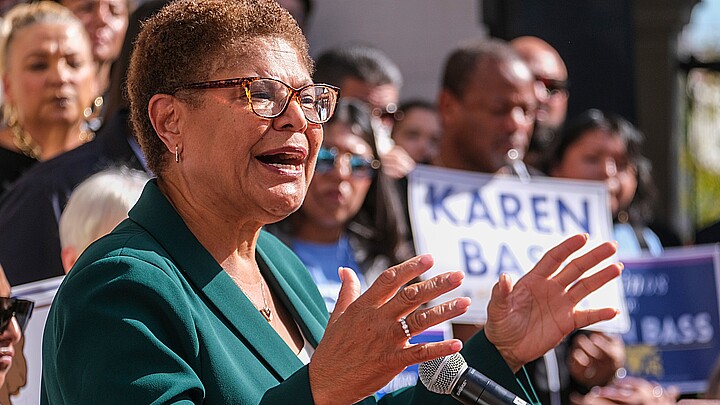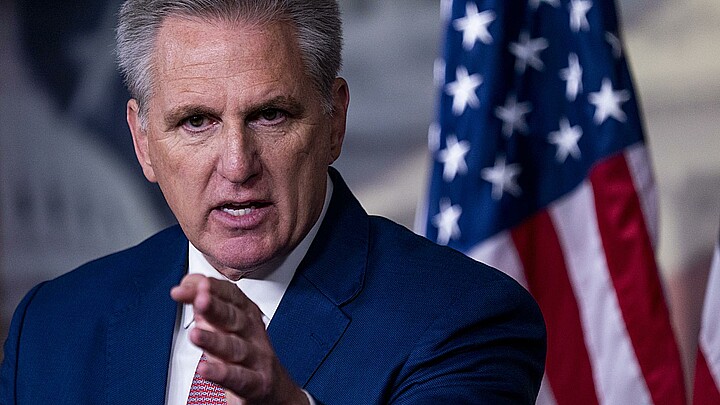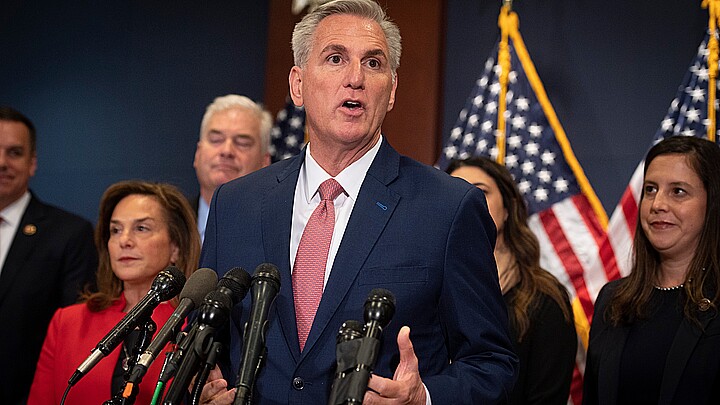Politics
California lawmakers pass $300 billion budget framework days before deadline
State lawmakers passed their legislative budget proposal out of both the Assembly and Senate on Monday, moving the proposal on to Gov. Gavin Newsom ahead of Wednesday’s deadline
June 13, 2022 7:20pm
Updated: June 14, 2022 1:42pm
State lawmakers passed their legislative budget proposal out of both the Assembly and Senate on Monday, moving the proposal on to Gov. Gavin Newsom ahead of Wednesday’s deadline.
The Legislature’s $300 billion budget framework includes $110 billion for education as required by Proposition 98, $40 billion on infrastructure investments and over $37 billion for reserves. The budget also includes lawmakers’ proposal to spend $10 billion to send relief to residents and small businesses.
The legislative budget framework also includes several aspects of Newsom’s budget proposal, including his plan to expand Medi-Cal to all eligible Californians regardless of their immigration status.
“This responsible budget package strikes the right balance of providing fiscal relief to families and small businesses,” Senate Budget Chair Nancy Skinner said Monday.
Under the California Constitution, legislators were required to pass a budget framework by Wednesday or else they could risk forfeiting pay. The budget document will now move to Newsom, and he will have about 12 working days to amend or sign the bill, according to budget process documents from the Senate.
The budget agreement received pushback from several Republican lawmakers, many of whom argued the budget should contain additional funding for water resiliency, a suspension of the state’s gas tax and more money for small businesses.
“With nearly $100 billion in surplus, the proposal before us still fails to adequately address the critical and core crises facing our state from a devastating drought to catastrophic wildfires to a potentially crippling power shortage,” Assembly Budget Committee Vice Chair Vince Fong told lawmakers. “Let’s be honest – at best, this budget is incomplete.”
A key piece of both Newsom’s and the Legislature’s proposed budgets are relief checks for residents, though Newsom and legislators have different plans to provide relief.
Newsom’s plan would use $11.5 billion of the state’s $97 billion surplus to send $400 checks to every registered vehicle owner, with a cap of two vehicles per person.
Lawmakers, however, have floated a separate plan that would send rebates of $200 per taxpayer and dependent for families making up to $250,000 in joint income and $125,000 for single filers. Under the proposal, a qualified family of five could receive a rebate of $1,000.
During a budget hearing Monday, lawmakers said they believe their rebate would be more beneficial for California residents as opposed to the governor’s proposal, which would be reliant on vehicle ownership.
“This is a much more equitable proposal than what the administration had proposed, which was frankly, based on car ownership – number of cars owned you’d get more money, which is very inequitable,” Assemblymember Alex Lee, D-San Jose, said.
Lawmakers also mentioned concerns about the potential for fraud under Newsom’s proposal. Representatives from Newsom’s office explained Monday that the inflation rebates would come through debit cards that would be mailed to registered vehicle owners. After seeing fraud that came from the Employment Development Department’s use of debit cards, some lawmakers noted that the governor’s proposal could lead to further issues with fraud.
“There’s nothing that stops anybody from going into someone’s mailbox and taking those debit cards, and we saw that happen throughout the past year,” Assemblymember Wendy Carrillo, D-Los Angeles, told lawmakers.
Representatives from the Department of Finance assured lawmakers that the governor “full heartedly agrees” that stopping fraud at the beginning is important. The Department of Finance stressed that they plan to do “due diligence” with vendors and ensure they use fraud detection methods to get debit cards in the hands of the right people.
After the budget passed the Assembly and Senate on Monday, Senate President pro Tempore Toni G. Atkins, D-San Diego, and Assembly Speaker Anthony Rendon, D-Lakewood, released a joint statement saying they “look forward to working with the Governor in the coming days to ensure we have a responsible budget in place for the start of the fiscal year that delivers prosperity and strengthens the future.”










